Costa‘s reign as the stalwart British coffeeshop appears to be wobbling as experts say the ‘predictable, bland and outdated’ brand is losing customers to trendy artisanal cafes – with owners reportedly considering selling the chain for a ‘cut-price’ deal.
Speaking to the Daily Mail, marketing and branding aficionados revealed how the trademark burgundy lettering once beloved by both the commuter and sweet grandmother alike is losing appeal with customers who are looking for more rustic, earnest aesthetics – and more value for money.
Parent company’s CEO James Quincey reportedly last month found the high-street staple had ‘not quite delivered’ and wasn’t ‘where they wanted it to be from an investment hypothesis point of view’.
According to The Grocer, the corporation also credited a three per cent decline in coffee sales on Costa’s performance in the UK, with its ‘food-to-go’ offerings struggling as well.
‘We’re in the mode of reflecting on what we’ve learned, thinking about how we might want to find new avenues to grow in the coffee category,’ he said, as per the outlet.
As shared by New Food Magazine, Costa’s most recent data shows that in 2023, the company made revenues of £1.22 billion, which, while a nine per cent growth on the previous year, shies away from the £1.3 billion in 2018 – the year it was acquired by Coca Cola.
In the past seven years, Costa has also returned more than £250 million in dividends to the food and drinks giant.
However, it doesn’t appear to be enough for the multinational nor the increasing amount of coffee aficionados in the UK.
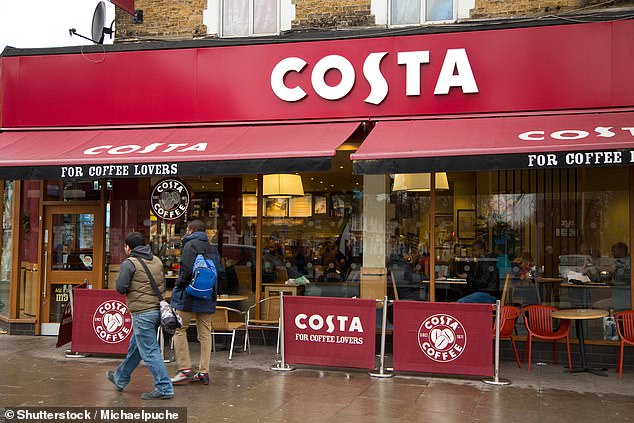
Costa ‘s reign as the stalwart British coffeeshop appears to be wobbling as experts say the ‘predictable, bland and outdated’ brand is losing customers to trendy artisanal cafes – with owners reportedly considering selling the chain for a ‘cut-price’ deal. Stock image used
‘Costa’s problem isn’t that Brits suddenly stopped drinking coffee. Far from it. It’s that the experience has become indistinguishable,’ said creative strategist Calvin Innes, at JvM NERD.
‘There’s no character left, and like any great coffee tasting notes, there should be depth, warmth and character. Walk into any Costa in the country and it feels the same.
‘Copy-and-paste décor, predictable menu, and the sense you could be anywhere. That uniformity was once a strength, but now makes Costa feel more like the ‘McDonald’s of coffee’ than a place people genuinely want to belong to.’
‘Meanwhile, consumer tastes have shifted. We’ve seen a growing appetite for smaller, more grassroots coffee shops that feel crafted, personal, and rooted in local culture.
‘For Gen Z and younger millennials in particular, coffee has become an important part of their lifestyles. They want character, warmth, personality, not another example of numb corporate sameness.
‘Independents, and even more premium players like Grind or Gail’s, offer the sense of discovery and individuality Costa has lost. They have what all good brands look for. Personality.’
Meanwhile, Dominic Goldman, Founder and CCO of You’re The Goods – said that Costa was left to weather wear and tear while other brands around them elevated and upskilled.
‘Britain once treated a cappuccino like a passport stamp,’ he revealed. ‘If a street could sell one, the postcode was on the up.
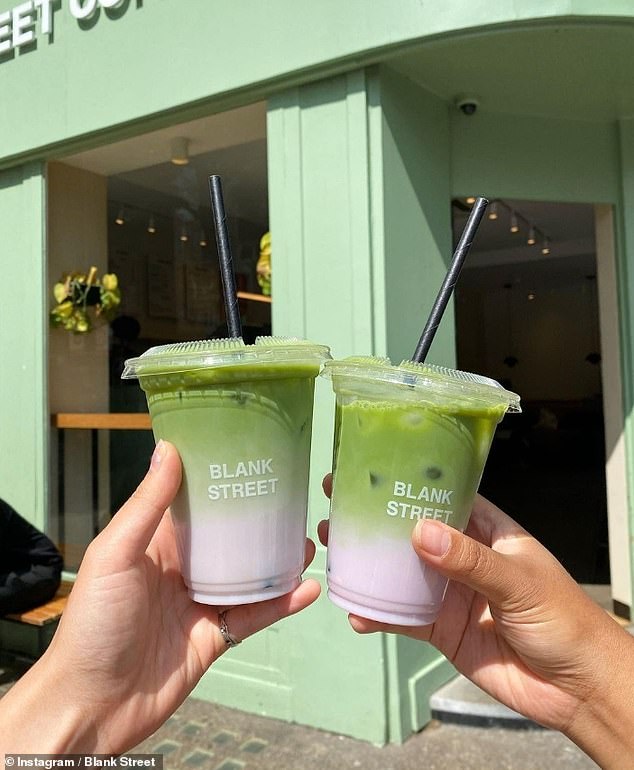
Consumers are looking for more aesthetically pleasing, artisanal-led brands from the high street – like Blank Street Coffee
‘Costa rode that wave, but while Coke polished its own halo, Costa’s brand was allowed to fray.
‘The coffee too often tastes rough, the stores feel grubby and dim, and the experience has slipped from everyday treat to compromise. Meanwhile our palates have grown up.’
He expressed that consumers no longer want ‘stale beans, scorched milk and a lazy pour’ – but rather, expect ‘better beans, cleaner texture and an environment that could pass for a holistic spa, while an indifferent, heavily pierced barista curates the minimalist soundtrack we end up Shazaming for the next dinner party’.
‘If I need fast fuel, McDonald’s has it and has built real brand love through smart storytelling and design,’ Dominic added.
‘Whoever buys Costa must fix the recipe and then invest properly in the brand, so a cup on a meeting table signals pride, not apology.
‘Bring one in today and the coffee snobs offer to wash your mouth out with single origin while they whisper notes of bergamot.’
Calvin agreed, stressing that Costa wasn’t able to keep up with the speed of coffee culture.
‘They didn’t evolve the brand story,’ he continued. ‘While Starbucks doubled down on lifestyle positioning and Pret leaned into convenience, Costa’s offer has sat in the middle, increasingly anonymous.
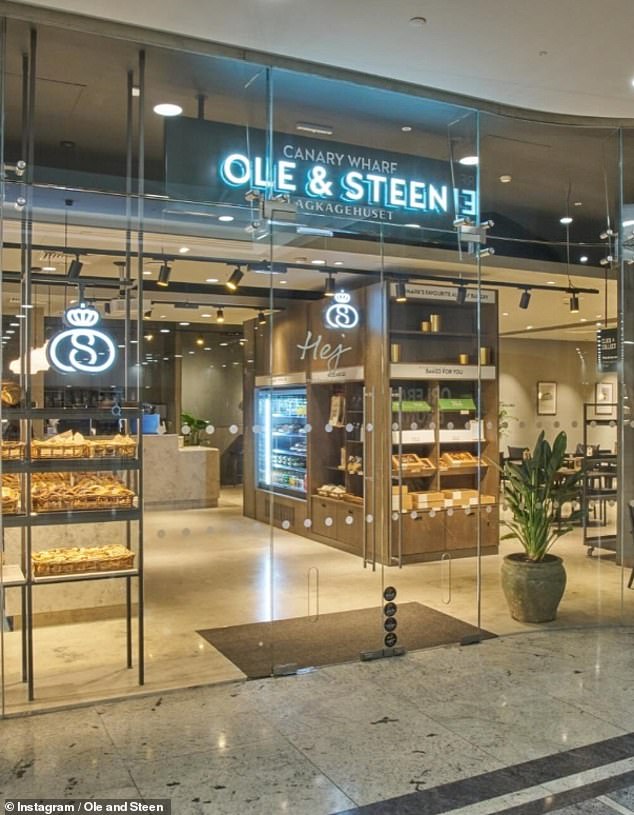
Among the contenders for specialised coffee and food is Ole & Steen which also touts a delicious bakery section
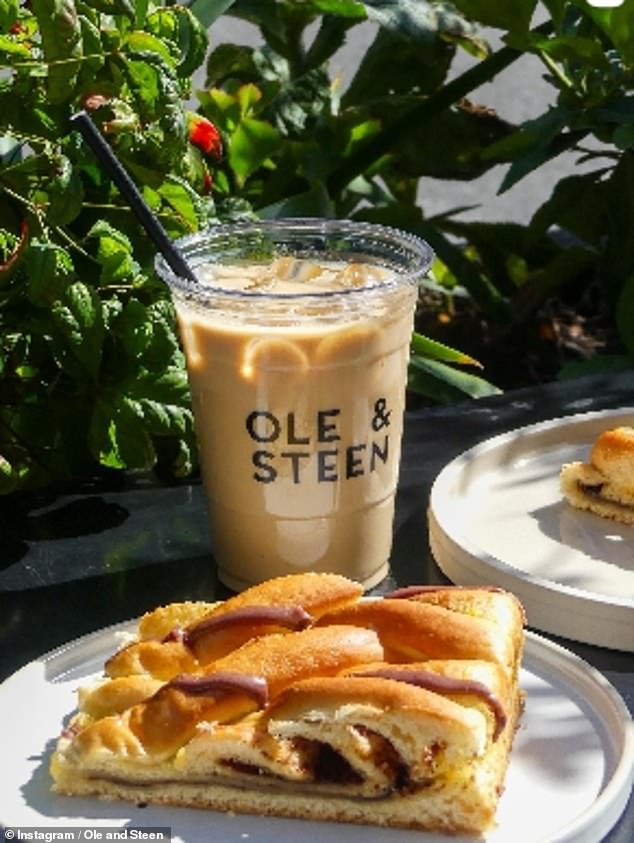
Branding experts say Costa has not ‘evolved’ its brand story – comparing it to other venues like the bougie Ole & Steen
‘When people want experiences and communities, not just a fix of caffeine, that middle ground leaves them dangerously exposed.’
Julia Payne, Founder of Fractional CMO also explained that a psychology was at play here.
People who visit coffee shops often pick the place they do for emotionally-driven reasons – something which she says Costa hasn’t tackled well.
‘Being everywhere makes Costa convenient, but convenience alone doesn’t create an emotional connection or a reason to prefer the brand over alternatives,’ she told the Daily Mail.
‘Modern consumers want more than just accessibility. They expect brands to feel relevant to their lives – personal, connected, community-led and distinctive in their offering.
‘They want fresh experiences, menus that evolve with cultural trends and spaces that feel comfortable and inviting – a place to meet friends, work or simply enjoy a moment of escape.
‘Instead, Costa, both the brand and the stores, feel dated and functional, signalling a lack of investment in the customer experience.
‘Costa has now become exactly what it is and what it projects, impersonal and corporate, putting profitability ahead of customer experience in ways that undermine both the consumer and brand trust.
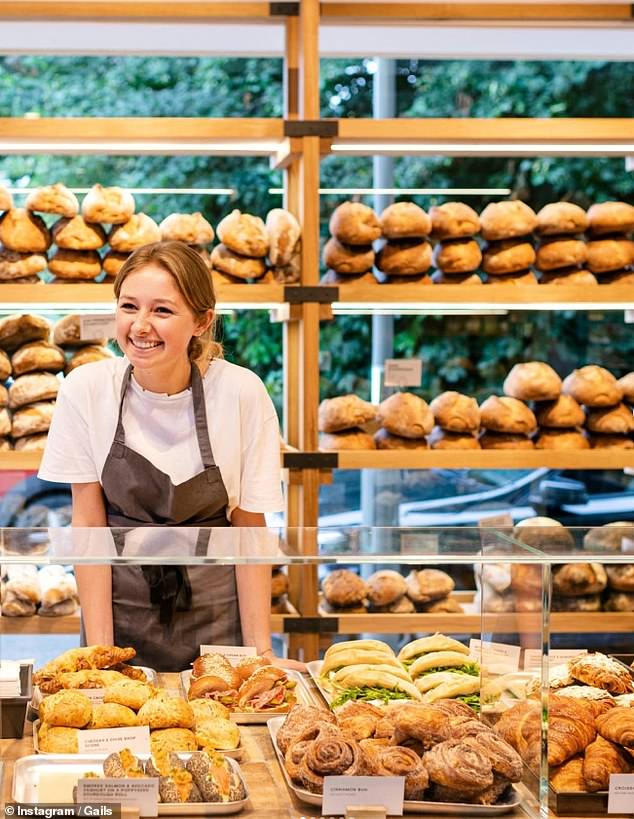
Gail’s is also a contender for a high street coffee chain that serves up ‘specialised’ more curated experiences
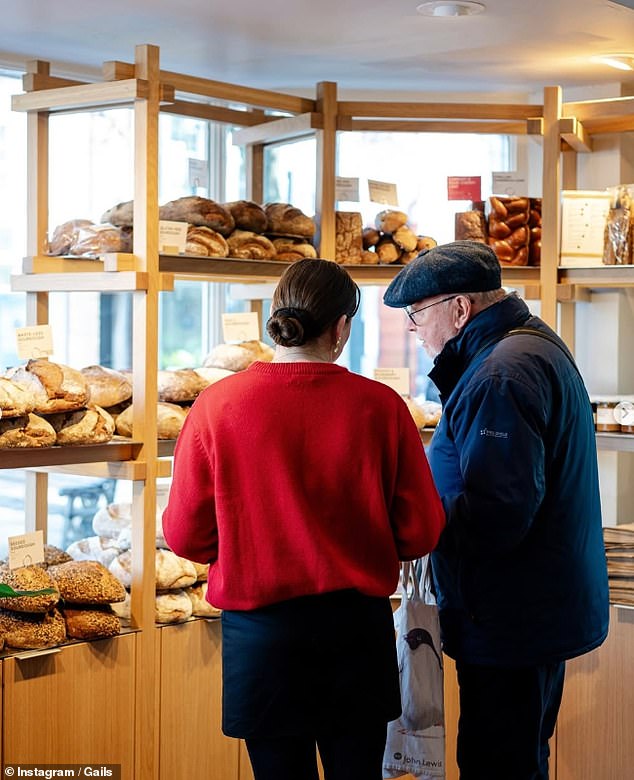
Experts also say that other brands must be cautious and learn from Costa’s mistakes. Gail’s, pictured, has been widely seen a high street success story
‘Their loss of a once strong sense of identity and brand purpose has eroded loyalty. It has become a brand invisible, despite its long-standing presence. A commodity in a market where consumers actively choose brands that feel authentic and meaningful to them.’
Elsewhere, Faris Sheibani – the founder of Qima Cafe – shared how it ‘highlights a new reality in the coffee market’.
‘Scale is no longer enough,’ she explained. ‘Coca-Cola’s big gamble hasn’t delivered, and even the company’s CEO is now apparently openly rethinking the strategy. Rising (and record breaking) commodity costs, shifting consumer habits, and more agile competitors have all added pressure.
‘The problem is that Costa sits neither here nor there. It isn’t offering the convenience and tech-enabled efficiency of new entrants like Blank Street, nor the authenticity and origin connection that consumers increasingly value. Starbucks has at least recognised the need to shift its image, but Costa has been slower to adapt.’
Faris added that ‘this isn’t about Brits suddenly wanting “posh” coffee – it’s about values’ as customers are seeking thought and intention behind everything from the cups used to where the raw materials are sourced.
But experts also say that other brands must be cautious and learn from Costa’s mistakes.
Paul MacKenzie-Cummins – owner of reputation management firm Clearly PR, which is based in Bath – warned that shoppers’ tastes are evolving quicker than most businesses will have had the stamina to cater for.
‘It feels to me that the misfortunes that are affecting Costa Coffee will soon be felt by some of the competitors as consumers appear to be rejecting the big brand concept in favour of small brand experience,’ he said.
‘When I think of Costa Coffee from a brand perspective, the words that come to my mind are those of a bland, sterile, and dare I say “cheap” coffee experience. They are everywhere – the high street, the local petrol station or convenience store, and the motorway service station.’
He compared the situation to dating. ‘If someone is always there and always available whenever you want them to be, it can become a turn off,’ Paul added. ‘Customers have simply been turned off by the omnipresence of Costa Coffee.
‘Compare this to the smaller independent coffee shops and it quickly becomes apparent why this sector of the industry is booming.
‘Indeed, take a walk around our hometown of Bath and there is a plethora of independent coffee stores on every street.
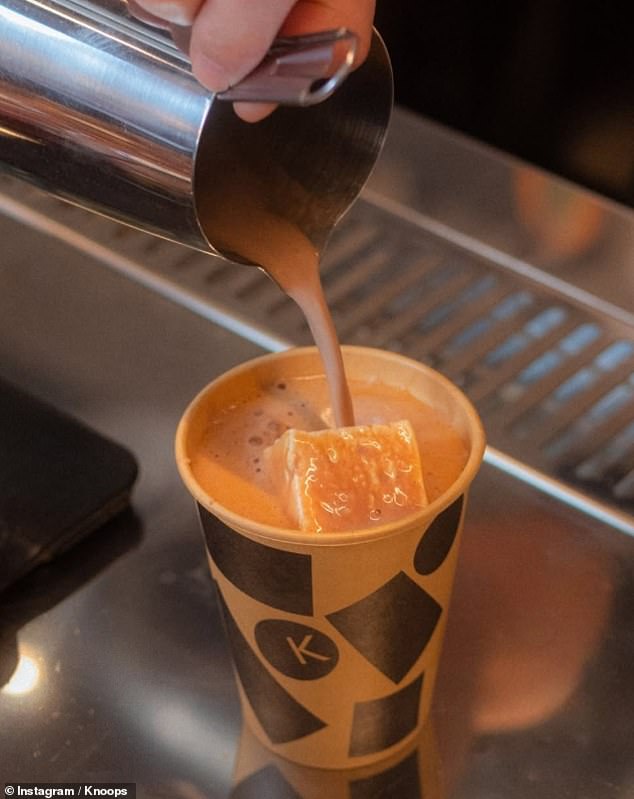
One expert stressed that ‘specialty coffee is no longer an outlier – but serious business on a global scale’, citing ‘KNOOPS has been listed as one of the fastest growing brands in Europe (FT1000)’
‘Each is different and all provide customers with an experience they would not get from a traditional high street chain.
‘Some will be specialist coffee houses, others will be known for their artisan offering or quirky physical environment. Whatever that difference is, it will create a clear emotional connection with customers and have a certain amount of social currency that is able to drive word of mouth – the most powerful form of PR there is.
‘”It” will also be the reason why these same customers will be prepared to pay more for their oat flat white at an independent coffee shop than in the likes of Costa Coffee.’
Speaking from her own experiences in the drinks industry, Emily Keogh, founder of food consultancy Palm says she has ‘watched a quiet revolution of specialty coffee, moving from hipster-niche to high street’ over the past decade.
‘Costa became Britain’s most familiar high-street coffee brand by offering consistency and convenience. But now they need to evolve beyond just being a predictable high street presence,’ she shared.
‘Today’s consumers want more than homogenous familiarity – the national palate has grown up! – and so tasting notes, craft, provenance and sustainability are all part of the important brand choices consumers make.’
Chains must all take note as Emily says curated experiences are now the norm – not the exception.
‘Specialty coffee is no longer an outlier – but serious business on a global scale,’ she continued.
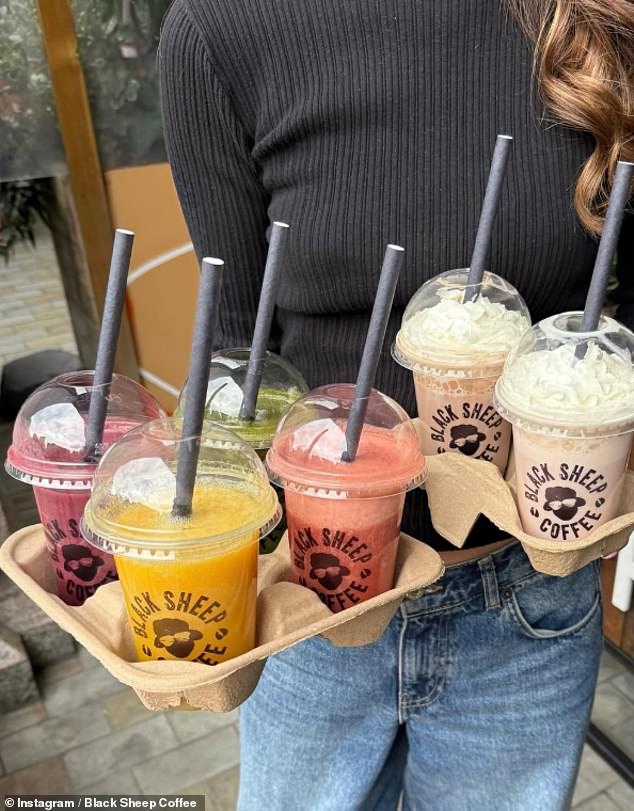
Black Sheep Coffee, pictured, is among the many venues which was spotlighted by the PR experts
‘KNOOPS has been listed as one of the fastest growing brands in Europe (FT1000), Qima Cafe has a world-best pastry chef at the helm, pairing treats with their ‘tree to cup’ coffees, Watchhouse has expanded into the US, and Black Sheep coffee received a whopping £13m of investment to roll out globally (backed by Spotify’s first investor, Coca-Cola Canada’s president amongst others).’
Consumer champion Martin Newsman meanwhile said there are external economic factors to consider as well, such a rising costs, with coffee bean prices hitting 50‑year highs, ‘adding to inflation and squeezing margins’.
‘Costa reported a £9.6 million pre-tax loss in 2023 amid increased operating costs,’ he shared.
‘Customers are also being affected by the cost of living crisis, as ‘fewer Britons are treating themselves to out-of-home coffee’.
‘Instant and RTD (ready-to-drink) formats, plus home-prep ‘shop-style’ options, are becoming more common,’ he continued.
‘Costa’s Express machines have been forced to raise prices – even applying “sickness surcharges” in hospital location – drawing backlash for exploiting vulnerable customers.’
And ‘with many people working from home or spending less time in city centres, Costa’s reliance on high-street real estate has become a liability’.
While corporate-run coffee chains may find themselves in a tight spot however, it appears to be a booming market for independent specialty venues.
‘The specialty market has been in London for a long time but companies have not been able to scale successfully with it,” says Jon Townsend, Director of The Institute of Coffee, told Coffee Institute.
‘Specialty coffee shops are growing thanks to investors and crowdfunding, which allow businesses to gain more capital to invest in property and negotiate better prices with producers for bulk purchasing.
‘In my opinion these shops open in mostly affluent areas, where the customers are less shy to spend £10 per transaction…
‘The other tactic is to set up in business districts, where there is high footfall and capital to spend on lunch.’
And despite the challenges Costa appears to be up against, some of its competitors look to be riding a post-pandemic high.
In September last year, Pret reported that sales rose by 10 per cent in the first half of 2024.
The latest data for 2023 showed that the company achieved £166 million in underlying profits – up by 12 per cent from 2022.
Café Nero meanwhile, in February reported ‘a sharp increase in sales for the first half of its current financial year’, according to City AM – posting ‘£310 million for the six months to the end of November 2024’.
However, global powerhouse Starbucks was was suffering declining sales in the UK after being put on a ‘boycott list’ in light of the Israel-Palestine conflict, and reported a pre-tax loss of £35.2 million for its 2024 financial year, Foodservice Equipment Journal said. It is a harsh contrast to the company’s £16.9 million profit the year prior.
Coca-Cola has yet to confirm its plans for Costa – but all is up in the air in a matcha-latte sipping world for customers that yearn for the sleekest customer experience possible.
The Daily Mail has reached out to Costa and Coca-Cola for comment.












